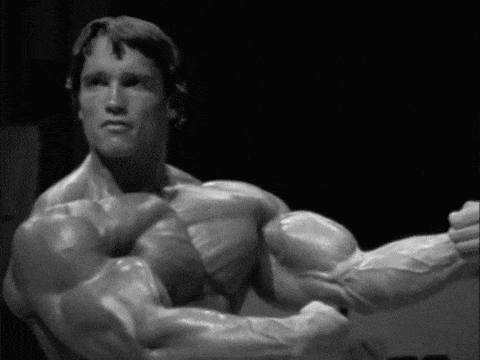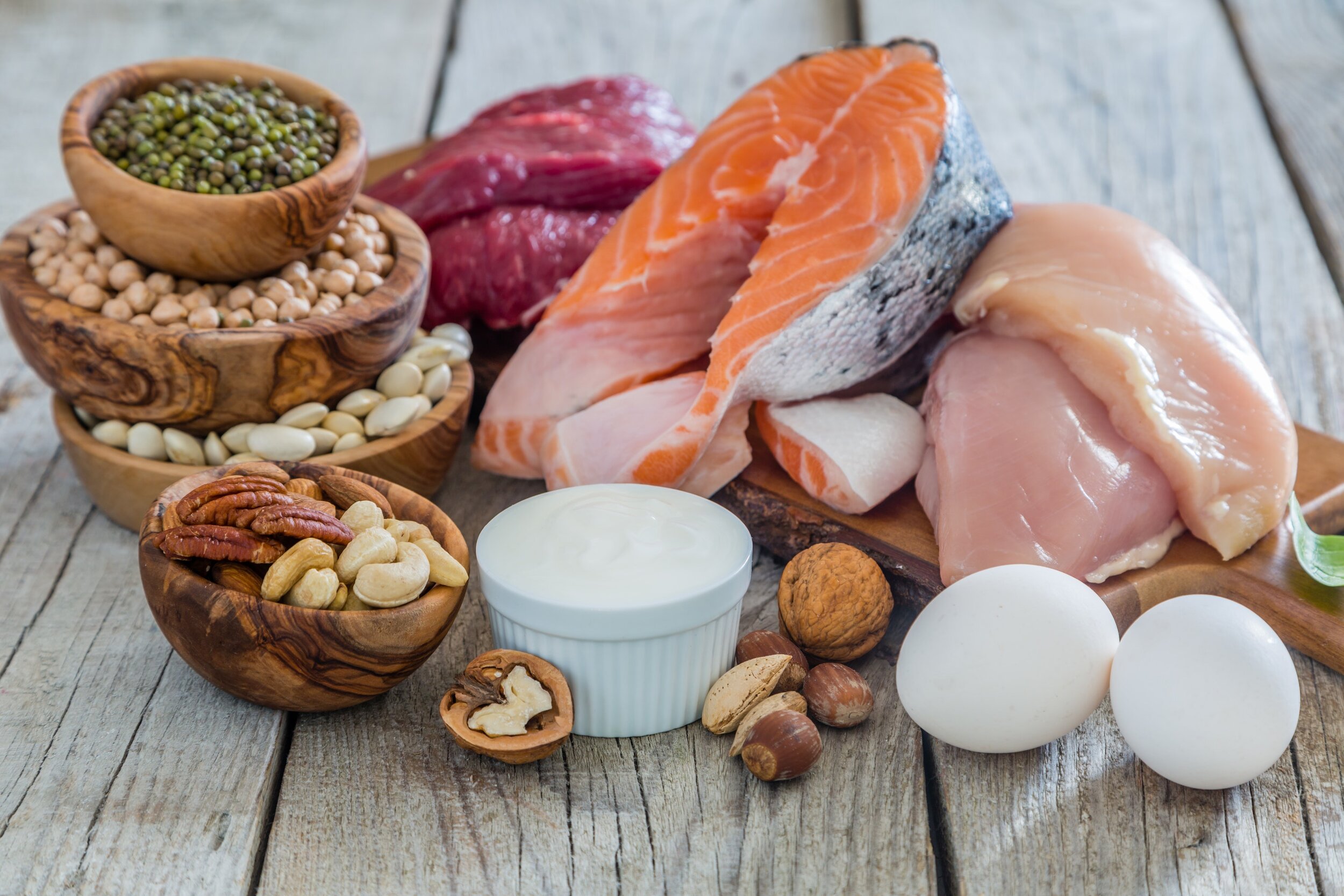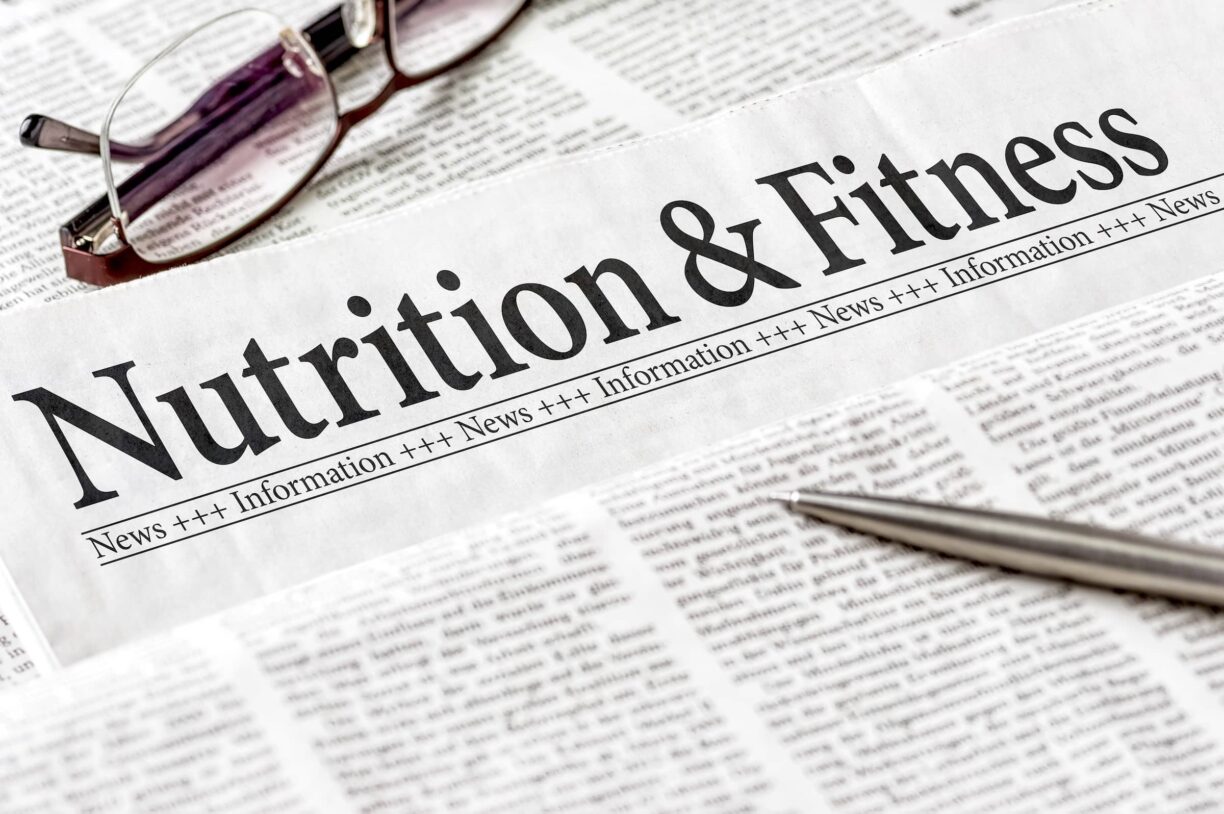The old saying goes that abs are made in the kitchen – and it’s protein, specifically, that holds a big chunk of the key to a leaner, stronger you.
For years, health-conscious dieters have been following the simple rule that to tone up and shift fat, you just need to eat fewer calories. But this overlooks some major factors – including the fact that your body needs protein to build and repair the muscle cells that are damaged during a workout.
Plenty of us are now waking up to the idea that looking and feeling great isn’t just about cutting down but also means making sure we’re eating enough of this vital macronutrient, with healthy and delicious meals that don’t scrimp on calories.

But, what actually is protein, how much should you be consuming, and will it turn you into the Incredible Hulk overnight? We called in the experts…
Why exactly is protein important?
Think of it like the Lego bricks of your body. “Protein is needed in every cell of the body – for growth, repair and structure,” explains Ruth Tongue, nutritionist at Foga.
“Not only is it an essential building block for muscle, skin, bones, teeth, blood and cartilage but it also makes up enzymes and hormones, all of which are essential for everyday functioning.”

When the muscle fibres become damaged during exercise, they need protein to rebuild and repair. Like carbohydrates and fat, protein is a macronutrient, which means you need relatively large amounts of it in your diet to stay healthy.
Protein also replaces worn-out cells and transports various substances throughout the body. Good sources include eggs, fish, seafood, chicken and turkey, soya, milk and nuts and seeds.
Is there a difference between plant-based and meat protein?
“Yes absolutely,” says Tongue, “and there are benefits to both.”
James Collier, head of nutrition and co-founder at Huel (uk.huel.com), explains: “All proteins are different, in that they consist of different amino acid chains. Amino acids are the simple units that make up proteins – nine of which we have to obtain from our diets.

“There are misconceptions about plant-based proteins, in that people claim that they are inferior to meat, eggs and dairy proteins, which isn’t the case,” assures Collier.
“Although the amino acid profile of a single plant-based protein source may be inferior to an animal protein, this is easy to get around simply by combining more than one source of plant protein in a meal.”
For example, Collier explains that beans and rice both contain good amounts of protein and together provide an amino acid profile that’s just as good as animal proteins.
With a bit of planning, you can get just as much protein from a vegan diet as you can a meat-based one, but you need to do some homework and plan ahead to make sure you’re getting enough.
Should you supplement your workout with protein shakes?
It depends what your gym goals are. “For anyone who’s eating a balanced diet with protein sources at each meal, it’s not at all necessary to supplement with protein shakes, unless they’re really struggling to maintain weight or they’re keen to increase body weight,” says Tongue.
“The only people who may benefit from protein supplementation are hard-training strength athletes, but even these folk don’t need anywhere near as much as is often recommended and consumed,” says Collier.
Plenty of boutique gyms and studios will sell protein shakes or smoothies and they can be a convenient way to increase your intake of protein, which is needed to support muscle growth.
However, Collier adds that protein shakes aren’t superior to good protein intake from food, so it’s always better to opt for the real deal if you can.
“If you are opting for shakes or powders, I would recommend choosing products that have a reasonable amount of protein in them but have no added nasties or sugars,” says Tongue.
How much protein should the average adult consume?
“This is a question of much debate,” says Collier. “Both the EU and the US recommended daily intakes of protein are just 50 grams per day; this is the absolute minimum and it’s a level that’s relatively easy to consume.”
Typically, most people who consume a varied diet manage to consume more than this amount.

As Collier explains though: “The problem with a simple figure is that it doesn’t relate to anything in respect of protein quality; there are essential minimum intakes of each of the nine essential amino acids set by the World Health Organisation.
“There are different methods of looking at the quality of protein, and the most validated ones look at the breakdown of amino acids and how readily the proteins are digested and absorbed,” he adds.
“Proteins with the highest scores are animal-based, mainly because individual plant proteins tend to have lower amounts of one or more of the key amino acids. However, a combination of more than one plant-based protein source also gives a perfect score.”
Consuming good amounts of protein can help maintain an optimal body composition, a healthy metabolism, and good athletic performance. “As a rule of thumb, you should aim to get between 20-30% of your total energy intake from protein,” says Collier.
Can you eat too much protein?
“Yes definitely,” says Tongue. “While protein helps us to stay feeling full, we know that if we eat too much of it, without cutting back on other calories, it will be converted to fat.
“In addition to this, if we’re getting this protein from animal sources, in particular red meat, it could raise our risk of certain cancers, high blood pressure and heart disease,” she adds.

“People who have any underlying kidney conditions should also avoid excess protein, as this will increase pressure on the organ.”
Collier reassures though: “The level of protein that would lead to health issues in healthy individuals is huge, and would usually only be brought on by an overly-excessive calorie intake.”
If unsure about your nutritional needs and intake, it’s always a good idea to consult with a qualified health professional.





